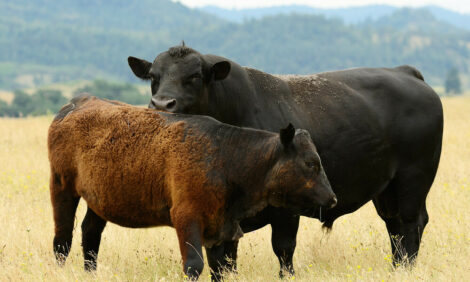



Mild winter expected to cause early and prolonged fly season, prof warns
Farmers should be prepared to protect their stock from flies earlier this year with the mild weather expected to increase fly numbers and prolong the season, a leading biologist is warning.Professor of Biology at the University of Sussex, Dave Goulson, says when the weather is mild flies will become active earlier in the year and will breed more within the same timeframe, resulting in an extended active fly season.
He said: “To excuse the pun, I would expect flies to get off to a flying start this year. Although the larvae will still be growing slowly, as soon as temperatures get into double digits the speed in which they grow will accelerate.”
Research by Prof Goulson predicts fly populations to treble by 2080.
He added: “There is a lot of guesswork in that as we don’t know how the populations that eat the flies will change.”
As a result, farmers should be taking action earlier to protect their cattle and sheep from flies as well as looking at season long control.
Vet Ally Anderson from Zoetis says it is far easier to control flies before they become a problem.
She said: “By the time you notice cattle or sheep being troubled by flies, a population explosion is already happening. When flies take hold it’s harder to control them.
With an extended fly season, it is also important to consider treatment throughout the season and remember to use a product that protects stock against the appropriate fly species.”
Flies can cause major economic losses through reduced feed intake, which impacts on productivity as well as transmitting diseases.
Studies in cattle have shown that fly worry can cause growth rate losses of up to 0.3kg a day and 0.5l a day milk loss.
In sheep, more than 5.5kg of weight can be lost over four to six days and reduced wool production by up to 26 percent in blowfly strike cases.
Treatment advice
Season-long fly control in cattle can be achieved using the Flectron tag, which has zero-day meat and milk withdrawal. Both Fly & Lice Spot On and DYSECT give up to eight weeks protection in cattle, with a zero-day milk withdrawal
Ms Anderson added: “For all treatments it’s important to speak to your vet or SQP to find out more.”
As part of the Parasite Watch scheme, run by Zoetis, 26 farms involved in the scheme will be using fly traps to monitor fly populations on the farm.
Farmers, vets and SQP’s can access the latest Parasite Watch updates here, where they will also be able to sign up to receive regular updates.


